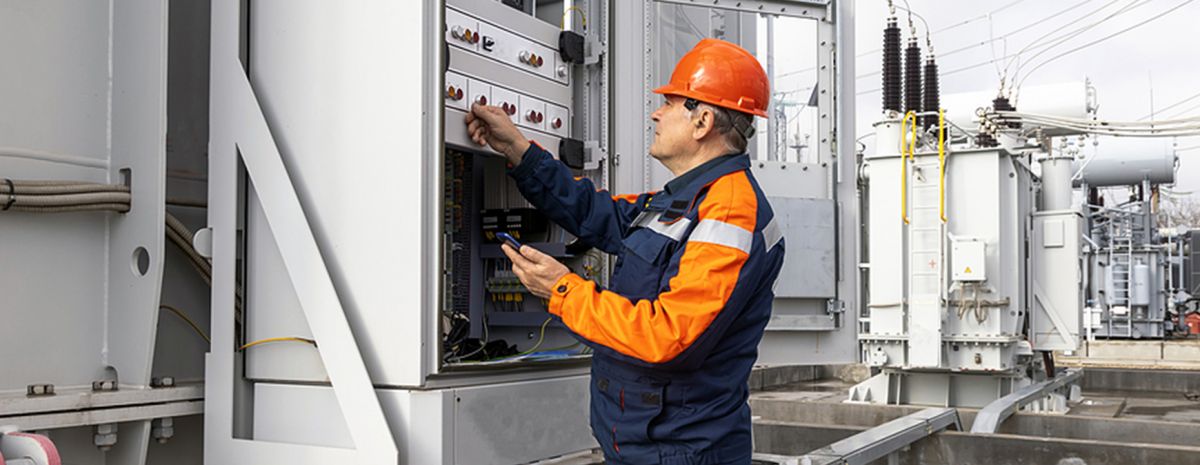
Struggling to choose between an HVAC or electrician career?
Take comfort: You’re not alone! It’s common for aspiring trades professionals to have a tough time deciding between these two career options. There are plenty of overlapping requirements and benefits, which makes the decision that much harder.
We’d like to give you a better understanding of the unique skills, demands, and training requirements of both skilled trade professions.
Take a deep dive into how crucial factors compare between an HVAC vs electrician career.
Job Description: HVAC vs Electrician
HVAC Techs
HVAC is an acronym for heating, ventilation, and air conditioning, which accurately outlines the primary responsibilities of HVAC technicians.
Get Started on the Path to a New Career
Fill out our form to learn how we can help you change your life.
These skilled trade professionals install, maintain, and repair various forms of HVAC equipment to ensure buildings have comfortable temperature control and clean air.
Sometimes, you might see these experts called HVAC-R techs. The “R” stands for refrigeration and represents another specialization within the field.
Electricians
These experts work with electricity!
More specifically, electricians are tasked with installing, maintaining, and repairing electrical, lighting, control, and communications systems.
Electricians deal with wiring, lighting fixtures, circuit breakers, transformers, and other key electrical components. These skilled trades professionals are responsible for installing and optimizing electrical systems in new construction or repairing and maintaining existing systems in older buildings.
Due to the complexity and potential hazards of the work, Electrical work is complex and has many potential hazards so electricians need to adhere to strict federal, state, and local requirements.
Work Environment: HVAC vs Electrician
HVAC Techs
HVAC systems are used everywhere to optimize temperature control, air quality, and humidity.
As a result, HVAC technicians don’t have boring work environments!
HVAC technicians work in a range of settings. Here are just a few:
- Homes
- Businesses
- Schools
- Hospitals
- Stores
- Factories
While some HVAC techs remain at the same job site throughout the day, others bounce around between home service calls within a particular area.
The majority of professionals work inside since most HVAC equipment is housed indoors. Still, some techs have to work outside in different weather conditions.
Electricians
Like HVAC techs, electricians work in a wide variety of settings. They’re that important!
An electrician can work in residential, commercial, and industrial settings, either indoors or outdoors. It’s not uncommon for these skilled tradespeople to commute between worksites either locally or long distance.
Given the out-of-place location of electrical systems, electricians often work in tight spaces. Some electricians have to deal with considerable heights too, especially when working on tall buildings or construction sites.
Education & Training: HVAC vs Electrician
HVAC Techs
You need at least a high school degree or GED equivalent to pursue a career in the HVAC field. Aspiring HVAC technicians can choose between joining a trade school or an apprenticeship to gain the specific knowledge and skills required to succeed in the field.
HVAC technician programs tend to last between six months and two years, while apprenticeships can last up to five years.
Electricians
Electricians have similar education and training requirements as their HVAC counterparts. Aspiring electricians require a minimum of a high school diploma or GED.
When it comes to formal training, electricians usually choose between an apprenticeship or a technical program. Apprenticeships tend to last longer than trade school programs.
On top of that, technical instruction provides electricians with a holistic education that focuses on various facets of the field:
- Math
- Electrical theory
- Code requirements
- First-aid procedures
- Blueprint reading
It’s not uncommon for electricians to receive more specialized training in a subfield such as elevators or communications.6
Salaries: HVAC vs Electrician
Salary is super important for HVAC technicians and electricians. Sadly, the myth that skilled trades professionals don’t have great salary potential persists. Let’s dispel that right now.
HVAC Tech Salary
The median HVAC tech salary is $48,630. On the lower end of the spectrum, the bottom 10% of professionals in the field earn less than $34,320. In contrast, the highest 10% earn over $78,210.*
Electrician Salary
The median electrician salary is $60,040. **
The bottom 10% of earners in the profession take home around $37,020 each year, while their high-earning counterparts earn over $99,800.
We’re committed to helping you figure out the career path that’s right for you. In fact, if you’re a high school senior, find out why an HVAC career could be your calling.
*According to BLS data as of May 2021, electrician (47-2111) annual mean wage is $51,300.
**According to BLS data as of May 2021, Heating, Air Conditioning, and Refrigeration Mechanics and Installers (49-9021) annual mean wage is $50,420.
This blog has been labeled as archived as it may no longer contain the most up-to-date data. For a list of all current blog posts, please visit our blog homepage at https://www.rsi.edu/blog/

